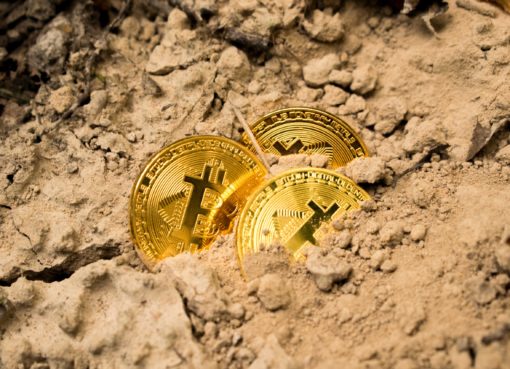Former Commodity Futures Trading Commission (CFTC) Chairman J. Christopher Giancarlo, former LabCFTC head Daniel Gorfine and Charles Giancarlo want to take the dollar digital – and they’re not waiting for the Fed.
The three are forming the Digital Dollar Foundation, working with Accenture to design and push for a potential U.S. central bank digital currency (CBDC).
The new not-for-profit organization has a multi-part plan to first create potential designs and proposals; convene economists, lawyers, academics, technologists and others to evaluate these designs; and create a framework for testing the new system, all with the goal of making dollar transactions as seamless as a text message.
The idea isn’t new: the former CFTC officials called for using a blockchain platform to support a digital dollar since an opinion piece in the Wall Street Journal last October. Essentially, a non-governmental group would run the project, with support from the Federal Reserve and other stakeholders.
An analog reserve currency does not serve modern users, Giancarlo said in a statement Thursday.
“A digital dollar would help future-proof the greenback and allow individuals and global enterprises to make payments in dollars irrespective of space and time,” he said.
The proposed digital dollar would be a tokenized form of the U.S. currency, which would work with other existing Fed liabilities but act as a digital settlement medium.
The digital dollar would “meet the demands of the new digital world and a cheaper, faster and more inclusive global financial system,” Giancarlo said.
Accenture will act as the chief architect and technology partner on the project.
In a statement, global blockchain lead and managing partner David Treat said the firm would bring together some of the stakeholders to combine both real-world experience and new technological abilities to drive the project.
Giancarlo said Accenture has worked with a number of central banks, including the Bank of Canada, the Monetary Authority of Singapore and the European Central Bank, to innovate around existing systems.
In particular, he highlighted the firm’s work with Sweden’s Riksbank on designing the ekrona.
Treat told CoinDesk via a spokesperson that Accenture has already invested heavily in the space, particularly with regard to CBDC and “the inherent value use cases. CBDCs can also support other digital ledger-based projects, he said.
“As an example, the ability to directly exchange a CBDC for a tokenized security will have profound effects on global capital markets,” he said.
Supporting the dollar
To begin with, the foundation will hold meetings, roundtable discussions and open forums to look into different approaches to creating a digital dollar.
“Core governmental interests,” including support for existing Fed projects, will also be considered, the press release noted.
This initial effort will culminate in a set of principles, which will then be compared to stakeholder needs and the practical requirements for a CBDC, as well as evaluated for U.S. legal compliance, the release said.
Fed buy-in is key: the digital dollar would have to be backed by the U.S. central bank, unlike most existing cryptocurrencies and dollar-pegged stablecoins.
Notably, the Digital Dollar Foundation’s proposals would look to preserve the existing financial system, not replace or otherwise supersede it, according to the press release.
As such, it is likely to take into account, if not outright coordinate with, the FedNow project, the Fed’s real-time payment system. While rumors that the central bank would develop its own digital payment rails have persisted for years, the entity only formally announced the effort last year.
To date, it does not appear as though FedNow will utilize a blockchain, though the project is in an early stage.
Still, what is clear is that Fed governors and Chairman Jerome Powell are aware of the technology, and are at least evaluating the potential use of a blockchain to support the system.
U.S. lawmakers French Hill (R-Ark.) and Bill Foster (D-Ill.) have even weighed into the debate, asking Powell whether using a blockchain-based CBDC was feasible or worth the effort.
Powell has so far responded that while the Fed is looking into the matter, he doesn’t yet see if there will be any significant benefit to pursuing monetary policy with a CBDC.
Gorfine, who previously ran the CFTC’s financial technology initiative in LabCFTC, told CoinDesk via email that a number of issues must be worked out before a U.S. CBDC can be issued, including legal, economic, privacy, security and technology concerns.
“These are some of the issues we intend to explore and we will do so with a broad range of stakeholders through a phased approach that may include actual or proposed pilots,” he said. “Ultimately, a digital dollar would need to be issued by the Fed, and our goal is to advance a framework for potential, practical steps that could support such an effort.”
Global needs
Thursday’s announcement comes amid growing rumors that China may soon be ready to launch its own central bank digital currency. The full details and scope of China’s project are unknown, though it appears possible that the country could try to take on the U.S. dollar’s dominance of the global financial system.
It remains to be seen whether a digital renminbi could take on the dollar in dominating the global financial system. Jerry Brito, executive director at industry think tank Coin Center, argued in a blog post that the renminbi’s fundamentals will not change just because it is placed on a blockchain, and therefore a Chinese CBDC poses no threat to the U.S. dollar.
Still, former senior U.S. government officials and academics have considered the possibility that nations like North Korea could use a digital renminbi to bypass sanctions while hostile actors target the aging infrastructure supporting remittances today, like the SWIFT Network.
Other nations are also looking to issue their own CBDCs. The Marshall Islands is perhaps one of the most advanced, announcing last year that it would issue the Marshallese sovereign in two stages: first, a private pre-sale to gauge liquidity, followed by the public issuance sometime within the next two years.
Private groups are also looking to serve the declared need for a global, scalable means of transmission, most famously the Libra stablecoin project, which social media giant Facebook announced last June as an effort to create an international payment system specifically targeting un- or underbanked individuals.
The new digital dollar envisioned by Giancarlo and Gorfine would fulfill the same niche, but act more simply as just the 21st century dollar, however.
“It must … reduce costs, foster security, improve transparency and serve as an effective digital settlement medium nationally and internationally to make the dollar a better currency for all of its global users,” the press release said.
Disclosure Read More
The leader in blockchain news, CoinDesk is a media outlet that strives for the highest journalistic standards and abides by a strict set of editorial policies. CoinDesk is an independent operating subsidiary of Digital Currency Group, which invests in cryptocurrencies and blockchain startups.



